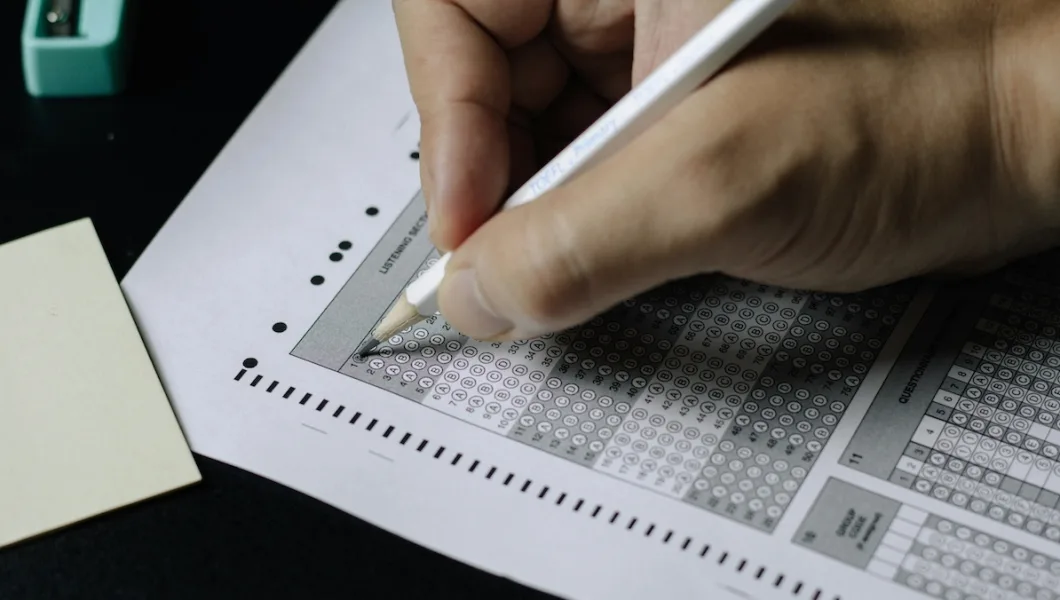Exams present challenges in the lives of most students. When exams get closer, anxiety and stress levels are bound to soar. The modern education system places a great deal of responsibility on the shoulders of ordinary students, and their opportunities for a successful future depend on exams. Poor results on exams can negatively impact your academic performance, career prospects, and quality of life.
The degree of anxiety may vary depending on the individual predisposition of the student, but simple and effective techniques can significantly reduce the destructive impact of stress on the individual. There are a number of ways students can reduce their stress and increase their chances for a successful outcome, including the use of technology. For example, students can create study plans around their exam goals using apps to help them stay organized. If time management is an issue, they may also consider delegating a few papers to trusted APA paper writers.
What Is Exam Anxiety?
Although some degree of exam anxiety is acceptable, it can severely hinder the performance of some students. Physical symptoms such as a racing heart, headache, or nausea might accompany mental symptoms such as a lack of concentration, anxious thoughts, or apprehension. Fear of failing an exam, whether the ACT, an Advanced Placement (AP) course, or a crucial final in history, can undo months of preparation.
Tips To Relieve Exam Anxiety
Start Preparing in Advance
The main secret of success and the key to reducing anxiety levels is the timely start of preparation. It is pretty easy to do well in exams; you just need to prepare well for them. If you procrastinate and put off preparation until the last minute, you will have several sleepless nights. Not only will such last-minute preparation be significantly less effective, but it will also hurt your stress levels.
We recommend determining how much time you need to prepare for the subject exam. Make a schedule and a complete preparation plan, evenly distributing time between all essential topics. Take time to prepare every day, and try to stay on schedule under no circumstances. Progressive, planned preparation in itself can have a positive impact on your self-confidence and give you extra peace of mind.
Keep Your Notes Organized
Make sure that your schoolwork and notes are well-organized. Disorganization can amplify the effects of worry. You won’t be able to find even a single page of notes that you need, which will cause you to lose focus on studying and drive you to panic.
Maintaining order in your academic work will help you avoid this issue. Organizing your belongings may maximize your study time and help you quickly find anything. So that you don’t lose track of anything, keep all of your class notes in one notebook. Additionally, each time you jot down notes, date the page. Make sure to keep your notes, assignments, and study tools in their own folder for each class if you take notes on your computer. Remember to date your notes as well.
If you have any unstructured class materials, put them in a folder. For easy access, you can store and organize your course materials, such as handouts, essays, homework, and previous exams.
Take Breaks While Studying
Even while you should study to your heart’s content, there is such a thing as studying too much. You will only exacerbate your worry and stress if you devote every waking moment to studying. Include breaks in your study timetable. A 10-minute break is a good idea every hour or two. Activities of any kind will suffice. Do whatever makes you feel better: watch TV, work out, stretch (particularly your neck and arms), take a stroll, nap, etc. Doing so will give your mind a break, allowing you to return to your studies with renewed vigor.
Remember to give a chance to a trusted paper writing assistant if you feel frustrated or overwhelmed. According to a recent EssayShark review, you will be able to get top-notch assistance with academic papers in no time.
Keep the Exam in Perspective
Under pressure, it’s tempting to “catastrophize”—to imagine the worst-case scenario and fret over something improbable yet within the realm of possibility. As a result, the student may experience a domino effect of negative emotions, leading to increased anxiety, distraction, worry, and low performance. Here are a few ways of thinking to help put things in context:
You should expect to score well on this examination if you have a history of solid performance on tests in this course. If you fail, there will likely be more than just the end of the world for you. It is possible to take several exams more than once; for example, you may need to retake chemistry class, pass the bar exam, or get a driver’s license. Rather than aiming for a specific grade, you might simply need to pass the course.
Look for Physical Symptoms of Anxiety
Not only is anxiety a mental condition, but it also manifests physically, and if you know how to recognize it, you can get help. You may tell you’re anxious about a test if you have any of these symptoms whenever you study or think about it. Steps can be taken to alleviate symptoms thereafter.
- Headaches.
- Gastrointestinal discomfort.
- Dry mouth.
- Rapid heartbeat.
- Sweating.
- Shortness of breath.
Eat Healthy Meals Regularly
Anxious people often miss meals because they can’t bring themselves to eat. Doing this is incorrect. Anxiety can worsen if you’re hungry. Additionally, your brain will be depleted of nutrition, making it difficult for you to concentrate. Maintain your strength by eating three well-balanced meals daily.
It is important to eat healthfully. Eating foods containing whole grains, fruits, vegetables, and lean proteins is essential to keep you going throughout your study session.
Keep away from anything that has sugar. These are harmful to your health and can even amplify your anxiety due to the jitteriness they induce in your blood sugar levels. The energy boost won’t last forever, and you won’t be able to concentrate on your studies after that.
Get Quality Sleep and Try Meditation
A lack of sleep can also contribute to anxious feelings. Make it a habit to sleep for at least eight hours every night. After enough sleep, you’ll be ready to tackle your studies with a clear head.
People with anxiety can benefit greatly from meditation because of its calming effects on the body and mind. Make time to meditate if you’re nervous about studying for an exam. If you want a handbook on meditation, read expert articles on meditation techniques.
Avoid People Who Generate Anxiety
You could know someone who is constantly talking about how nervous they are for tests because they, too, suffer from test anxiety. Keep some distance from them if you’re attempting to study; it doesn’t imply you can’t be friends with them. It could be counterproductive to let their negative ideas get the best of you when trying to control your anxieties.






